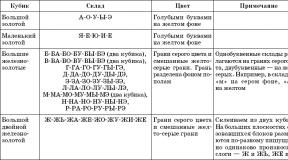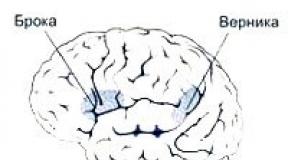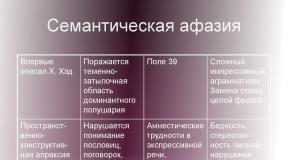To be and not to seem the author. To be, not to seem, or how to find your way. Balance of your own and others' opinions
To be, not to seem ... How fashionable is the topic of people with disabilities in our country. At Eurovision, our country was to be represented by a girl in a wheelchair, Yulia Samoilova. Let it not happen, this is another story, but the fact remains.
The achievements of our Paralympians are admired by the whole world. We have a state program "Accessible Environment", we all know what it is, and so on. The list goes on. And one gets the impression that people with disabilities are loved in Russia, that ours is not a country, but some kind of social Eldorado. And I would really like to really be, and not to seem.
It was not by chance that I used the term fashion. You can argue with me, the facts are more difficult, because in the meantime ...
- There are 12.5 million people with disabilities in Russia!
- 25% of Russians experience discomfort when dealing with people with disabilities.
- 450,000 people with disabilities of the musculoskeletal system would like to work, but have not been able to find a job for more than six months.
- 135,000 people with disabilities are homeless.
To my readers, a family that is raising a child with cerebral palsy in grave condition and have no housing, they have finally allocated it. It turned out that this is an apartment in the old fund, on the 5th floor in a building without an elevator, without a ramp, with a leaking roof and in an absolutely "killed" state. Of course, THANKS for that too, but how much bitterness there is in this gratitude. There is so much misunderstanding, indifference and neglect in this apartment.
- 46% of people with mental disabilities could, but did not finish school.
“How can you teach a child if he does not speak, does not sit, does not hold a pencil in his hands? Moreover, with partially intact intelligence. We are not magicians! " - not a single opinion.
- 15 315 rubles a pension of a disabled person of the 1st group in Russia. For comparison, translated into rubles - 44,000 rubles. in Germany, 103,000 rubles. in Switzerland.
Of course, in these countries and the standard of living is much higher and costs. And yet the percentage ratio between expenses and income is not in our favor.
- The cost of a prosthesis is from 400,000 rubles.
- The cost of a wheelchair, in which, thanks to its perfection and capabilities, you can feel like a person in a wheelchair, and not a disabled person in a wheelchair (feel the difference) from 300,000 rubles.
- There are 203 metro stations in Moscow, of which only 23 are equipped with wheelchair lifts.
- In cities of millionaires, only 10% of housing is equipped with ramps.
- The availability of the environment, even in large cities, remains very conditional.
This is how it is, the flip side of the life of people with disabilities... It is in these conditions that they manage to live and value life, and enjoy it, as well as win and achieve incredible results.
To be, not to seem, a welfare state is not an easy task, but an achievable one. And let's not wait, but move towards a bright goal on our own, because the state is us.
When every second disabled person becomes a star of sports, stage, science, technology, literature, it will become impossible to ignore their needs and opinions. "I am a hero. I just have no other choice "- said
Statistics borrowed from a journal article.
STEPHEN COVEY
PRIMARY GREATNESS
THE 12 LEVERS OF SUCCESS
Published with permission from the FranklinCovey Company
Legal support of the publishing house is provided by the law firm "Vegas-Lex".
FranklinCovey and the FC logo and trademarks are trademarks of FranklinCovey Co. and their use is by permission.
© FranklinCovey Company, 2015.
© Translation into Russian, edition in Russian, design. LLC "Mann, Ivanov and Ferber", 2016
* * *
This book is well complemented by:
Eric Bertrand Larssen
Opening remarks by Sean Covey
The future of my father, Stephen Covey, was predetermined. My grandfather owned a very successful hotel chain, and of course, the eldest son - my father - had to continue the business.
But my father felt drawn to teaching. The craving was irresistible - everything in him called to be heard. And he decided to teach, no matter what it cost him. He saw tremendous potential in his students, he was consumed by the need to give this potential to materialize. But he could not forget what his grandfather wanted for him, and decided to talk to him. However, he was afraid that his grandfather would not understand him.
And then one day my father made up his mind and told my grandfather that he really dreamed of becoming a teacher. The grandfather replied: “Great, sonny. You will make a great teacher. Honestly, I don't really like business myself. " So Dr. Covey became a university professor, a writer, and in fact - one of the world's foremost thinkers in such areas as leadership, organizational management, family issues. And all because he found the courage to respond to his own need and find his own voice.
He also helped others to find their voice. I once asked my father for a definition of what leadership is. And he replied: "Leadership is the ability to communicate to another person what his value and potential are, and to do it so clearly and visually that a person, having received a charge of inspiration, can see these qualities in himself." This was the first time I heard such a definition, and it moved me. Why? Yes, because these words spoke a lot about himself. He always managed to make me understand what my value and what my potential is, even when I did not see it in myself. He made me feel omnipotent, feel like I have an important mission. And he awakened the same feelings in my brothers and sisters and in everyone who surrounded him. He believed that every human being has his own destiny, that each of us is infinitely valuable and has extraordinary capabilities, and that each of us is unique.
My father was a great teacher - above all, he taught us by his example and his own words. His views have defined my whole life. He constantly told me that there are only two ways of life - a life full of true greatness and a life of false greatness. True greatness is what a person really is: his character, integrity, real motivations and desires. False greatness is popularity, titles, social status, fame, fortune, and accolades.
My father taught me not to think about false greatness and focus on true greatness. He also talked about the fact that false, secondary greatness often - although not always - accompanies those who have achieved true greatness, and that true greatness is already a reward in itself, since it gives peace in the soul, a sense of self-worth and deep, full meaning of the relationship. This reward far outweighs the benefits of false greatness — money, fame, and that selfish, momentary existence that we so often call "success."
I am writing this introduction three years after my father's death. But his voice - deep, soulful - is preserved in these essays. Preparing them for printing, we practically did not change anything - the texts remained the same as they were, having just come out from under his pen. We've simply arranged them in such a way as to provide a coherent account of how to live a life of true greatness. Some of the essays were written while my father was working on The Seven Habits of Highly Effective People, and it's amazing to watch how what he first articulated in these sketches turned into ideas that have changed the world of business and the lives of millions of people. In this book, you will find amazing and inspiring reflections on how to move from the cheap tinsel of what is called “success” to a meaningful life full of peace of mind, satisfaction and wisdom.
The lives of many of us are full of problems, disappointments, and dissatisfaction. But what is often presented as a "solution" to a problem is actually only a superficial means. This book offers true healing in a world ruled by aspirin and band-aid.
I had to deal with painful life trials, and I was convinced from my own experience that what my father taught me - namely, these principles are spoken in the book - gave me and my family the courage and confidence to move forward, work and be happy. These principles will help you too.
Foreword
When the Titanic set out on her first - and last - voyage, there were 614 sun loungers on deck. Every morning, the team laid out these sun loungers and arranged them in such a way that passengers wanted to dive in them, soak up the decks. Passengers were free to rearrange the sun loungers according to their wishes.
It is clear that when the Titanic began to sink, it never occurred to anyone to "rearrange the sun loungers in accordance with their desires."
Now, when we talk about someone “rearranging the deck chairs on the Titanic,” we mean doing pointless and trivial actions instead of doing something important, something that can change your life. Because this is the last thing in life - rearranging sun loungers on a sinking ship. The latter is literally.
But why, then, is this the first thing many of us do?
"Rearranging the sun loungers" means passing the appearance of reality, worrying more about the external image than the internal content, prioritizing in the opposite order.
This is what we all do. We do everything topsy-turvy.
And the result? Off-target shooting, ruined careers, broken families, poor health, bankrupt companies, lost friendships, a life buried under the rubble of bad decisions.
This is exactly what happened on the Titanic, which sank in 1912 and claimed 1,517 lives. The “Safety First” requirement was the last in the line of priorities. The ship was sailing at full speed through dangerous ice fields. There were not enough lifeboats for everyone. No one was conducting safety drills, so when the disaster struck, the passengers had no idea what to do.
The story of "Titanic" once again confirms the truth of Goethe's statement: "The most important matters should never be subordinated to the least important."
How many of us choose to highlight things that don't really mean anything?
How many of us allow our own interests to prevail over those for whom we are responsible?
And how often do we be nice to those about whom later, behind their back, we are not ashamed to say nasty things?
And aren't we more cordial and fair in relation to strangers than to our loved ones - those people who mean much more to us than strangers?
And are we not striving to grab more, but give less?
Are we sacrificing long-term success for momentary success? And do we really value the outer polish, the tinsel of success (deck chairs) above peace of mind and satisfaction from the real benefits that we can bring (salvaging the ship)?
Stephen Covey believed that true greatness is the kind of success that accompanies real human contribution. The external attributes of success - position in society, popularity, image - are the essence of false greatness. When you observe the actions and behavior of celebrities, famous athletes, big bosses, film actors, and the like, you will witness a glimmer of false greatness.
True greatness is within, it is not striking. True greatness is in the very essence of man. False greatness is external. As Dr. Covey taught, "Many of those who have false greatness - that is, public recognition of their talents - lack just true greatness and positive qualities." And sooner or later this manifests itself in their relationships with other people - with a business partner, with a spouse, friend, or with their own child experiencing teenage problems. This is where true character comes in. Emerson once said, "The way you look drowns out what you have to say."
Real success in life comes when life is filled with true greatness - when a person is guided by duty, honor, dignity, perseverance, self-sacrifice and service, regardless of material rewards and circumstances. These are natural, universal, unbreakable principles. They are the same for everyone, everywhere and at all times. The pursuit of false greatness, if you do not possess true greatness, gives nothing. You cannot build a successful life on quicksand, just as you cannot build it on the external attributes of glory. It can only be built on a granite foundation of unshakable principles.
However, the irony is that often - though not always - false greatness accompanies true greatness. People endowed with good and positive qualities become winners just because others trust them. Their hard work, as a rule, brings good and reliable results, and sometimes prosperity. Through their work ethic, they win love and loyalty. And this is the natural outcome of true greatness. Although, of course, there are no guarantees: respectable people, like everyone else, can also, for example, get sick, they can be pursued by failure. Many good, decent people work hard all their lives, but they never achieve financial success. But those who strive for true greatness enjoy a special sense of contentment and peace, which cannot be achieved by those who yearn for false greatness, since the latter, deep down, understand that they lack something very essential.
Many people confuse success and false greatness. They go out of their way to get everything that will speak of their success, but do not want to admit to themselves what they really are. True success is expensive, but they do not want to pay this price, so they are looking for roundabouts that would allow them to succeed without much difficulty. They create a false impression. They pretend to be friends.
Many people may admit that from time to time they have similar thoughts. However, negative traits such as selfishness, laziness, procrastination, dishonesty also have consequences.
In this age of false greatness, opinion polls matter far more than ethical convictions, and the veneer has much more influence than the inner content. Yet deep down in our souls, we feel that a successful life is a life in accordance with the principles, that external success is nothing if it is not based on internal success. We want our children to achieve inner success. We want the same for ourselves. "According to Gallup polls, more than 90 percent of American adults adhere to the ideas of honesty, democracy, tolerance of people of other races and cultures, patriotism, friendship, family values, moral courage and the Golden Rule of Morality."
This intuition also has a completely scientific basis. Scientists who study skills and identify the traits that underlie success no longer focus exclusively on intelligence and talent: many see character as the main trait that leads to success. Take, for example, the famous Perry Project, in which researchers observed children for decades to identify factors that contributed to their life goals and vocations. The project started in 1965 in Michigan, 123 children became the object of study. preschool age... The children were taught to "concentrate on often boring tasks ... follow a plan ... postpone gratification." In other words, character was instilled in them. Half a century later, this technique made itself felt in how the life of the project participants developed. Compared to their peers from the same environment - namely from a highly disadvantaged area with a predominantly African American population - they had much more high level education, twice the employment rate and significantly higher income; at the same time, they were twice less likely to be brought to the police and arrested.
Interestingly, the original goal of Project Perry was to raise the children's IQ. But this just did not happen, but something else happened - their SQ (success quotient) increased significantly, which once again emphasizes the value and significance of character.
Stephen Covey was convinced that character is a much more important factor in achieving success than talent, intelligence or circumstances. Therefore, he devoted his work to ensuring that people around the world recognize this fundamental truth and in accordance with it change their lives. Thousands and thousands have achieved this through training or simply by carefully studying his books. Today these principles are being mastered by very young people in schools and colleges on all continents - for them the FranklinCovey company has developed a full-fledged training course "The Leader in Me". The results are truly remarkable, as those who have taken this course recognize the difference between true and false greatness and learn to live with true greatness.
How do principles of true greatness become part of our existence? Isn't the character inherent in us from birth and is it possible to change it?
Yes, it's not easy, but character can be changed. As Dr. Covey taught, we are free to choose our own course of action. Human character can be likened culinary recipe: a cup of hereditary properties, a tablespoon of surroundings, a few ounces of luck, but it's up to you to decide what to make with these ingredients.
The key to success is to stick to firm principles and stop making even short side trips. When your goal is to move north without turning, you follow the compass needle. Any deviation - and you are already wandering wherever you want, just not to the north. This is the brutal reality. Reality, like success, is governed by the same principles, and when you transcend them, you suffer the consequences.
Violating one of these principles may not immediately make you feel guilty or even uncomfortable. Moreover, you can experience what scientists call the “cheater's delight,” the joy of getting away with it. Many people enjoy the fact that they managed to cheat with taxes, deceive the accounting department by presenting fake business trip bills, and say nasty things about someone. Such people feel much higher than all these pitiful simpletons who do not cheat or deceive anyone. But even in the depths of their souls, they realize that they have caused great harm to others - but in fact they have hurt themselves, because such actions do not pass without leaving a trace for their character.
Anyone who violates the principles of frugality and spends more than they should be at risk of poverty. To someone whose bad habits violate the principles by which his body exists, who eats improperly and neglects physical exercise, disease and physical weakness threaten. Those who violate the principles of kindness and respect will have more enemies than friends.
Of course, none of these consequences are 100% inevitable. But if you look at life through an impartial, realistic filter of probability, you will see that such consequences overtake very, very often.
The principles governing your reality are not questioned. They are outside your control. They don't care if you believe in them or not - they just exist. Therefore, you will succeed much faster in life if you adjust to these principles and stop trying to ignore them.
This means that you should take a closer look at your character and figure out what motivates you. You should readjust your motives and character traits in accordance with the principles that bring success; and work on negative traits such as procrastination, jealousy, or selfishness.
In fact, it is not easy to enter the “mysterious garden” of life, as Stephen Covey calls it, and figure out what grows in it. It is not easy to reconfigure your existence in accordance with true principles, but this is the only way to real success.
Principles are like levers. You are unlikely to be able to move a huge boulder, but with the help of a lever you can do it. And the longer and tighter the lever, the easier it will be for you to do this. As Archimedes said, "Give me a long enough lever, and I will turn the world." Principles such as honesty, a willingness to help, and a commitment to prioritization are immensely powerful. Only by persistently and persistently applying these levers can you expect to be able to move the biggest obstacles out of your path to success - such character flaws as selfishness, victimism, and deviation from true priorities. If you are a straightforward, honest person, others will trust you. If you are attentive, not indifferent to people, if you help them, you will achieve better results and get more from people. When you start prioritizing true priorities, you don't have to pay off wasted time and wasted life.
In this book, Stephen Covey talks about taking the important journey from being obsessed with false greatness to focusing on true greatness. He describes twelve powerful levers - twelve principles by which truly successful people live. You will learn how to assimilate these principles, make them truly your own.
So, here they are:
Wholeness
Following Priorities
Self sacrifice
Service
A responsibility
Loyalty
Interdependence
Manifold
Continuous learning
Self-renewal
Mentoring
First lever - wholeness, a state in which a person is one and indivisible. The inner world of an integral personality does not differ from its external appearance. The whole person has no secret thoughts and hidden motives. Such people, as Dr. Covey said, "have completely integrated into their existence the whole set of correct principles."
True success can be achieved only when the goal forms a single whole with the inner essence. Once you set yourself such a goal, you will be able to achieve true greatness.
The listed twelve levers help to move from apparent success to real success; let go of deeply rooted doubts and become a confident person who feels that there is a solid foundation in life in the form of natural principles.
Why are we talking about twelve levers?
Even in ancient times, thinkers made lists of useful principles. The teachings of Aristotle about the virtues and the thirteen virtues that Benjamin Franklin wrote about come to mind. Today, the outstanding psychologist Martin Seligman, based on scientific experiments, has identified twenty-four character traits that determine a full-fledged existence.
Stephen Covey's twelve levers are the result of research, long work and communication with thousands of people around the globe. Covey considered these levers to be fundamental and immutable, and he listed them according to a hierarchy. As already stated, wholeness Is the basis of true success together with contribution- that significant and positive legacy that we leave behind. Follow priorities allows us to create this contribution without being wasted on trifles.
It is impossible to achieve what will become a true legacy without self-sacrifice... WITH tinning people means the need to rise above their own "I" and feel the taste of true success.
V modern world the natural principle is increasingly neglected responsibility... No one wants to take responsibility for their own success. The difference between those who have true greatness and those whose greatness is false becomes quite obvious when one has to answer for failures and failures: the one with true greatness takes a step forward and, without shifting his guilt onto anyone, takes responsibility.
Loyalty Is a natural consequence of service. By practicing the principle of service, you build deep and equal relationships with others. You cultivate trust in people, and trust in you grows in them. Closely related to trust is the principle interdependence Is the same constant as the law of gravity. Any action has consequences. Consequences manifest themselves in every moment of your existence, and the balance of actions and consequences can be positive or negative. You are treated the way you treat others. When you undermine trust, you are encouraging to undermine trust in yourself. The reckoning may not come immediately, but you still have to pay.
If you want your success to be maximized, you must value manifold... Whatever you touch - biology or business, politics or production - the same law of nature reigns everywhere: difference beats uniformity. As Stephen Covey said, "if two people have the same opinion, one of them becomes redundant." By learning to appreciate the driving force behind the diversity that other people bring to life, you will take another step towards success.
Without lifelong learning and self-renewal you risk falling into stagnation. A person renews himself when he plays sports, reads, spends time with those he loves, engages in spiritual practices, such as meditation. In conclusion, it should be said that you will better understand the principles of true greatness, instructing others - that is, not only serving as a personal example, but also teaching.
Together, the twelve levers make life easier but more rewarding. By using them, you strengthen your character and influence over others. There will still be huge boulders on your life path, but your attempts to move them will no longer be in vain.
The twelve levers are by no means the sum total of all the principles of success — there are many others. But these levers are irreplaceable and necessary. You cannot truly succeed without them. This book will help you understand what needs to be done in order for them to become an integral part of your being.
True greatness is a natural consequence of using these levers.
There is great power in good action.
An understanding friend has tremendous influence.
The responsible worker is given more and more responsibility.
The whole personality has powerful moral muscles.
As Stephen Covey said, “... If you want your marriage to be happy, radiate positive energy and don't use negative energy. If you want your teenage child to be more pleasant and accommodating, become a more understanding, compassionate, consistent, and loving parent yourself. If you want more freedom of action at work, become a more responsible, responsive and active employee. If you want to be trusted, be reliable. If you want to get your talent recognized, focus on the true greatness of character. "
Stephen Covey's influence is a global phenomenon. Started with the publication of The Seven Habits of Highly Effective People in 1989, millions of leaders, educators and families around the world have drawn inspiration and support from Dr. Covey's words. If his ideas sound familiar to you, it is because his language has become the language of our time. Phrases such as “being proactive”, “thinking in the spirit of won / won”, “first strive to understand, then - to be understood” have defined the culture in which we live.
However, Stephen Covey's contribution goes far beyond the Seven Habits book. The publishers of the book you are holding have reviewed dozens of articles Dr. Covey has published and selected those that most clearly expressed his views on the principles of a successful life. Some of these articles were previously inaccessible to a wide range of readers. And we are confident that Stephen Covey's thoughts will help you change your life: it will not only be good, it will become great.
Dr. Covey's colleagues
. « Golden Rule morality "- a general ethical rule, which can be formulated as" Treat people the way you want to treat you. " Approx. ed.
Quoted from The Benefits of Character Education by Jessica Layhey, May 6, 2013 in The Atlantic. Approx. ed.
In fact, the project began in 1962 in one of Michigan's most deprived neighborhoods. His goal was to search for new developmental teaching methods. Approx. per.
In the Russian tradition, this phrase of Archimedes sounds differently: "Give me a fulcrum, and I will turn the Earth." Approx. per.
Stephen Covey
Be, not seem to be. Reflections on True Success
STEPHEN COVEY
PRIMARY GREATNESS
THE 12 LEVERS OF SUCCESS
Published with permission from the FranklinCovey Company
Legal support of the publishing house is provided by the law firm "Vegas-Lex".
FranklinCovey and the FC logo and trademarks are trademarks of FranklinCovey Co. and their use is by permission.
© FranklinCovey Company, 2015.
© Translation into Russian, edition in Russian, design. LLC "Mann, Ivanov and Ferber", 2016
* * *This book is well complemented by:
Great thoughts
Stephen Covey
Igor Mann
Make yourself
Tina Seelig
Take or give?
Adam Grant
With no self-pity
Eric Bertrand Larssen
Opening remarks by Sean Covey
The future of my father, Stephen Covey, was predetermined. My grandfather owned a very successful hotel chain, and of course, the eldest son - my father - had to continue the business.
But my father felt drawn to teaching. The craving was irresistible - everything in him called to be heard. And he decided to teach, no matter what it cost him. He saw tremendous potential in his students, he was consumed by the need to give this potential to materialize. But he could not forget what his grandfather wanted for him, and decided to talk to him. However, he was afraid that his grandfather would not understand him.
And then one day my father made up his mind and told my grandfather that he really dreamed of becoming a teacher. The grandfather replied: “Great, sonny. You will make a great teacher. Honestly, I don't really like business myself. " So Dr. Covey became a university professor, a writer, and in fact - one of the world's foremost thinkers in such areas as leadership, organizational management, family issues. And all because he found the courage to respond to his own need and find his own voice.
He also helped others to find their voice. I once asked my father for a definition of what leadership is. And he replied: "Leadership is the ability to communicate to another person what his value and potential are, and to do it so clearly and visually that a person, having received a charge of inspiration, can see these qualities in himself." This was the first time I heard such a definition, and it moved me. Why? Yes, because these words spoke a lot about himself. He always managed to make me understand what my value and what my potential is, even when I did not see it in myself. He made me feel omnipotent, feel like I have an important mission. And he awakened the same feelings in my brothers and sisters and in everyone who surrounded him. He believed that every human being has his own destiny, that each of us is infinitely valuable and has extraordinary capabilities, and that each of us is unique.
My father was a great teacher - above all, he taught us by his example and his own words. His views have defined my whole life. He constantly told me that there are only two ways of life - a life full of true greatness and a life of false greatness. True greatness is what a person really is: his character, integrity, real motivations and desires. False greatness is popularity, titles, social status, fame, fortune, and accolades.
My father taught me not to think about false greatness and focus on true greatness. He also talked about the fact that false, secondary greatness often - although not always - accompanies those who have achieved true greatness, and that true greatness is already a reward in itself, since it gives peace in the soul, a sense of self-worth and deep, full meaning of the relationship. This reward far outweighs the benefits of false greatness — money, fame, and that selfish, momentary existence that we so often call "success."
I am writing this introduction three years after my father's death. But his voice - deep, soulful - is preserved in these essays. Preparing them for printing, we practically did not change anything - the texts remained the same as they were, having just come out from under his pen. We've simply arranged them in such a way as to provide a coherent account of how to live a life of true greatness. Some of the essays were written while my father was working on The Seven Habits of Highly Effective People, and it's amazing to watch how what he first articulated in these sketches turned into ideas that have changed the world of business and the lives of millions of people. In this book, you will find amazing and inspiring reflections on how to move from the cheap tinsel of what is called “success” to a meaningful life full of peace of mind, satisfaction and wisdom.
The lives of many of us are full of problems, disappointments, and dissatisfaction. But what is often presented as a "solution" to a problem is actually only a superficial means. This book offers true healing in a world ruled by aspirin and band-aid.
I had to deal with painful life trials, and I was convinced from my own experience that what my father taught me - namely, these principles are spoken in the book - gave me and my family the courage and confidence to move forward, work and be happy. These principles will help you too.
Foreword
When the Titanic set out on her first - and last - voyage, there were 614 sun loungers on deck. Every morning, the team laid out these sun loungers and arranged them in such a way that passengers wanted to dive in them, soak up the decks. Passengers were free to rearrange the sun loungers according to their wishes.
It is clear that when the Titanic began to sink, it never occurred to anyone to "rearrange the sun loungers in accordance with their desires."
Now, when we talk about someone “rearranging the deck chairs on the Titanic,” we mean doing pointless and trivial actions instead of doing something important, something that can change your life. Because this is the last thing in life - rearranging sun loungers on a sinking ship. The latter is literally.
Irina Smirnova
Teaches
Irina Vladimirovna, how do you think acting is relevant now?
To my great regret, I cannot but note that recently the interest in acting in the school theater has cooled down. The world around us is becoming more practical. If this does not guarantee admission to a prestigious university, then who needs it?
The need to practice theatrical art remains. Human nature, more than ever, now needs something that gives a passion for acting:
genuine human communication;
the ability to listen, and most importantly, to hear a partner;
the ability to exist "here and now";
spontaneity, the ability to improvise;
subtle, heightened perception, imaginative thinking, rich imagination and fantasy;
the ability to manage your energy;
plastic expressiveness, rich facial expressions, vivid speech ...
These skills cannot be mastered quickly, in passing. Not everyone today allows himself the luxury of spending himself if he does not receive immediate benefits.
And what does it mean to you to become an artist?
Now there are a large number of different castings for amateur actors. It seems to someone that it is easy to become an actor, it is necessary to appear in several talk shows as spectators, in a couple of unpretentious television projects - and you are already an actor, almost a star of the TV screen. You just need to remember that this has nothing to do with the profession. First of all, you need to get professional education- in its entirety.
Why is it important for a vocalist to master acting?
If you go on stage in front of the audience, they look at you, listen - you are already an actor. First of all, an actor. And only then you are a choreographer or a vocalist, or a mime ... You are on stage - and that means that you must be able to distribute yourself in its space. You are performing someone's work, someone who has put his feelings and thoughts into it, “encrypted” them in the artistic image of this work - which means that you have to “decipher” them, make them first understandable for yourself, and then for others. And for this, in addition to your wonderful voice, you will use all the wealth of your facial expressions, your gestures will be expressive, and your entire appearance will complement the artistic image of the work. And this is if you are alone. But there are also duets. And here one cannot do without communication with a partner, built according to all the laws of organic nature. This is the essence of acting.
In most of the exercises, you use historical or literary examples. Is it in order to improve the level of knowledge, or is there any other meaning in this?
I believe that it is impossible to explain something without examples, to convey your idea in our business - in art we are dealing with figurative thinking, associations, metaphors. We always refer to what has been said and done before us. The theater has the closest connection with literature. And as far as raising the level of knowledge is concerned, one cannot do without it. He, in a sense, is often poor.
What is your main artistic achievement?
Respect for colleagues, students. In any profession, it is important to “be”, not “to seem”. For me, as before, the words of Boris Pasternak "The purpose of creativity is dedication, not hype, not success ..." remain relevant. I may be old-fashioned, but this is my sincere conviction. I don’t want to waste time earning titles and awards. I love to compose my "second reality" on stage and bring it to life. See with your own eyes the world you invented and say that it's good! What can you compare such pleasure with?
Master class from Irina Smirnova
I really like one exercise that trains almost all of the action elements *:
The training participants sit in a circle. The teacher gives one of the participants a ball and offers to throw it to one of the comrades, and name any number up to one hundred, let's say - "twenty six". He must catch it and immediately send it to another player, repeating the number following the one that was named, in our case - "twenty seven". Further, he immediately must also name the second number - any, except for those that are next to the named (behind and in front). In this case, the forbidden numbers are "twenty six" and "twenty eight".
This condition is introduced in order to exclude the automatism of thinking and make students in the game think more energetically and agilely in the process of communication.
Anyone who breaks the rule must stand behind his chair and watch the players, and if he finds a mistake, change places with the one who made it. There should not be long pauses in the game. Do not hold the ball in your hands for a long time, the numbers should sound at the same tempo.
If the partner did not catch the ball, then the loser is the one who threw it, which means that it is he who stands up for his chair and continues the game, watching the players. Both the ball and the number must reach the partner! In the exercise, it is necessary to combine an act - the flight of a ball and an act-word, a number. In order to productively and purposefully influence the interlocutor, you need to spend maximum effort. A model of a verbal deed should mature in the head, a thought should be formulated and an object to which this thought will be addressed should arise.
After this exercise works well, you can make it harder.
For example, invite the players to exchange numbers by telling a children's story.



















